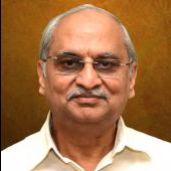Sangeetha Menon
Sangeetha Menon joined National Institute of Advanced Studies, in January 1996, in the Indian Institute of Science campus, Bangalore (India). Her interview and appointment was led by an illustrious group of scientists like Dr Raja Ramanna (Founding Director of NIAS), Prof CV Sundaram, Prof BV Sreekantan and Prof RL Kapur. Subsequently she conceptualised and commenced the NIAS Consciousness Studies Programme along with BV Sreekantan (former Director, TIFR and Honorary Professor, NIAS). This was the first academic group that started in India to study consciousness with an interdisciplinary and a multidisciplinary mandate. Sangeetha is a philosopher with a keen interest in consciousness. Her major area of research is in philosophy of psychology. Her expertise is in Indian philosophy, consciousness studies, philosophy of psychology, philosophy and psychology of self. She works with her colleagues at NIAS and collaborators worldwide to create and encourage a first-person centered approach to understanding consciousness and cognitive capabilities that favours experiential well-being for all. Dr Menon's professional qualifications include degrees in biology and philosophy. She is a first rank holder and gold medalist from Maharaja's College for Women, Trivandrum for post-graduate degree in philosophy. The thesis for her doctoral degree, from University of Kerala, is on the concept of consciousness in the Bhagavad Gita which was completed with junior and senior research fellowship from University Grants Commission, India.
Research Interest:
Prof Menon's major area of research is in philosophy of psychology. Her expertise is in Indian philosophy, consciousness studies, philosophy of psychology, philosophy and psychology of self. She works with her colleagues at NIAS and collaborators worldwide to create and encourage a first-person centered approach to understanding consciousness and cognitive capabilities that favours experiential well-being for all. Sangeetha Menon started her research with a comparative study of consciousness, from the East and the West, focusing on the theories of agency, emotion, freedom, self, and human well-being in the Bhagavad Gita. Subsequently, she focused on Indian philosophical concepts criss-crossing the works of philosophers: Sankaracharya, Abhinavagupta, Narayana Guru et al. and bringing in Indian aesthetics and dramaturgy to understand cognitive dimensions of creative expressions and personal agency. Her initial papers argue for an epistemological shift that considers the ontological primacy of self, and the importance of the experiencer that would present the 'harder problem' of consciousness. While some of her initial studies were deeply metaphysical and philosophical in approach, she moved on to engaging philosophy with biology and psychology to understand the primary issue in consciousness, which is the 'self'. She is one of the originators of the field of Indian psychology, guiding research in well-being studies, life-sustaining values, self-transformation, and artistic experience. One of her primary contributions in consciousness studies is presenting and engaging with the concept and experience of self from the neurobiological and philosophical point of view, and theorising a 'self-challenged brain and brain-challenged self'.


